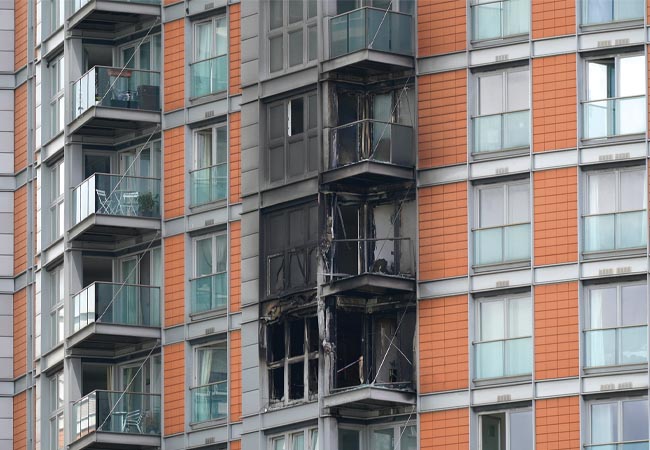
The London Fire Brigade (LFB) said a high-rise residential block behaved like a ‘broken chimney’ when it caught fire, because of the failure of its smoke ventilation system.
The fire at New Providence Wharf in London started in a fuse board, but escape routes were quickly blocked when smoke poured into the corridor trough a flat door that had been kept open accidentally.
LFB investigators found that the smoke detectors in the 8th-floor communal corridor failed to operate the automatic opening vent (AOV) and the cross-corridor fire doors. They pointed out that it is the responsibility of the building owner or manager to make sure the AOV, which is designed to ventilate and extract smoke during a fire to help residents escape, operates correctly, and urged high-rise building managers to check smoke ventilation systems ‘as a priority’.
The report concluded that the ACM cladding ‘did not significantly contribute to the external spread of the fire’, but that it was helped by timber decking on balconies. The LFB is asking all building owners and managers to check the materials used on balconies and modify them if required.
‘The smoke ventilation system inside New Providence Wharf acted like a broken chimney, leading to a potentially life-threatening situation,’ said deputy commissioner Richard Mills. ‘Had it not been for the exceptional actions of out firefighters and 999 control officers, this could have had tragic consequences.’
Mills added that this incident needed to be ‘an urgent wake-up call’ for all building owners and managers – adding that, despite the lessons of the Grenfell tragedy, ‘we are sadly still not seeing a culture change in all those responsible for fire safety in high-rise buildings’.

